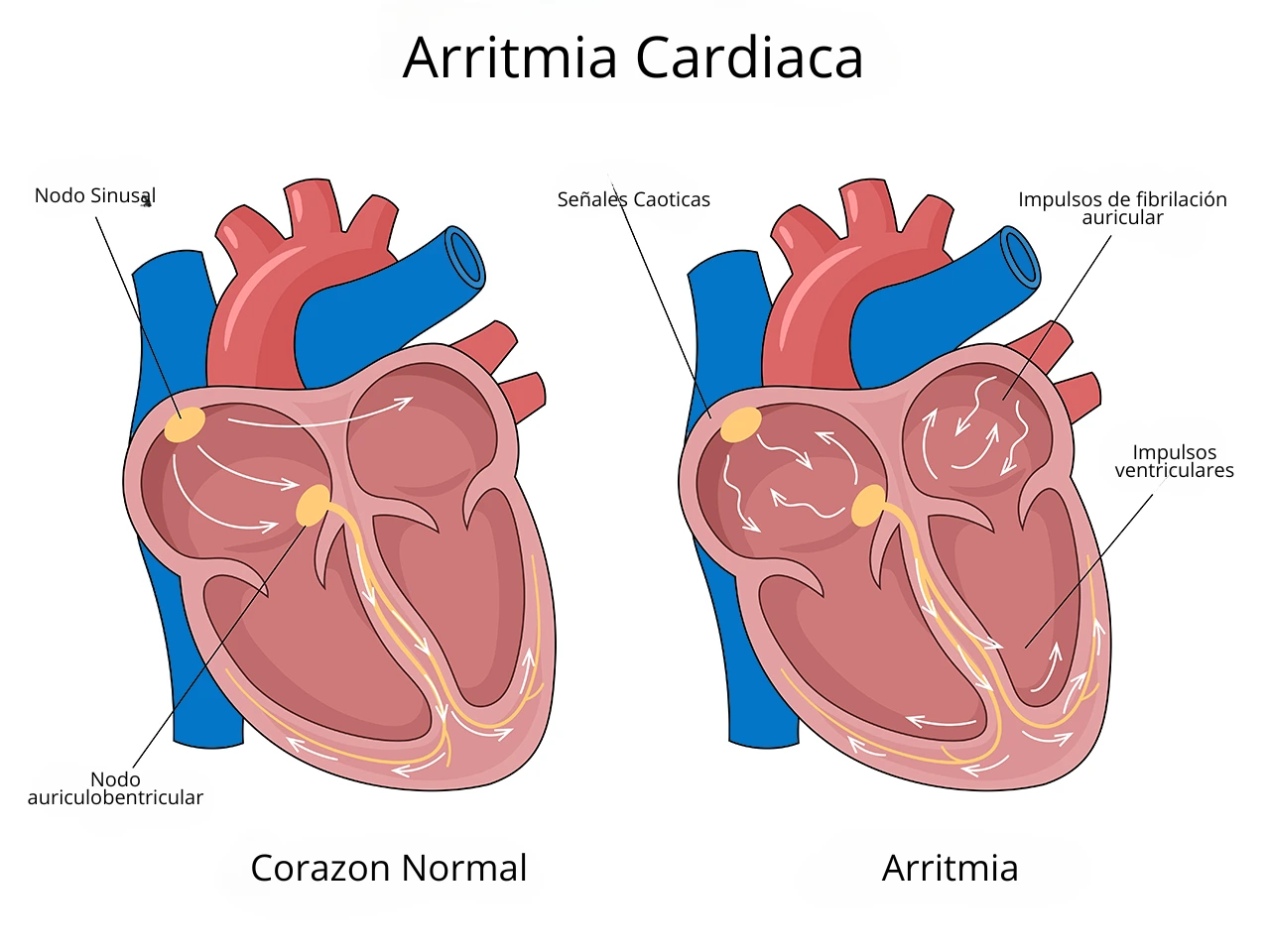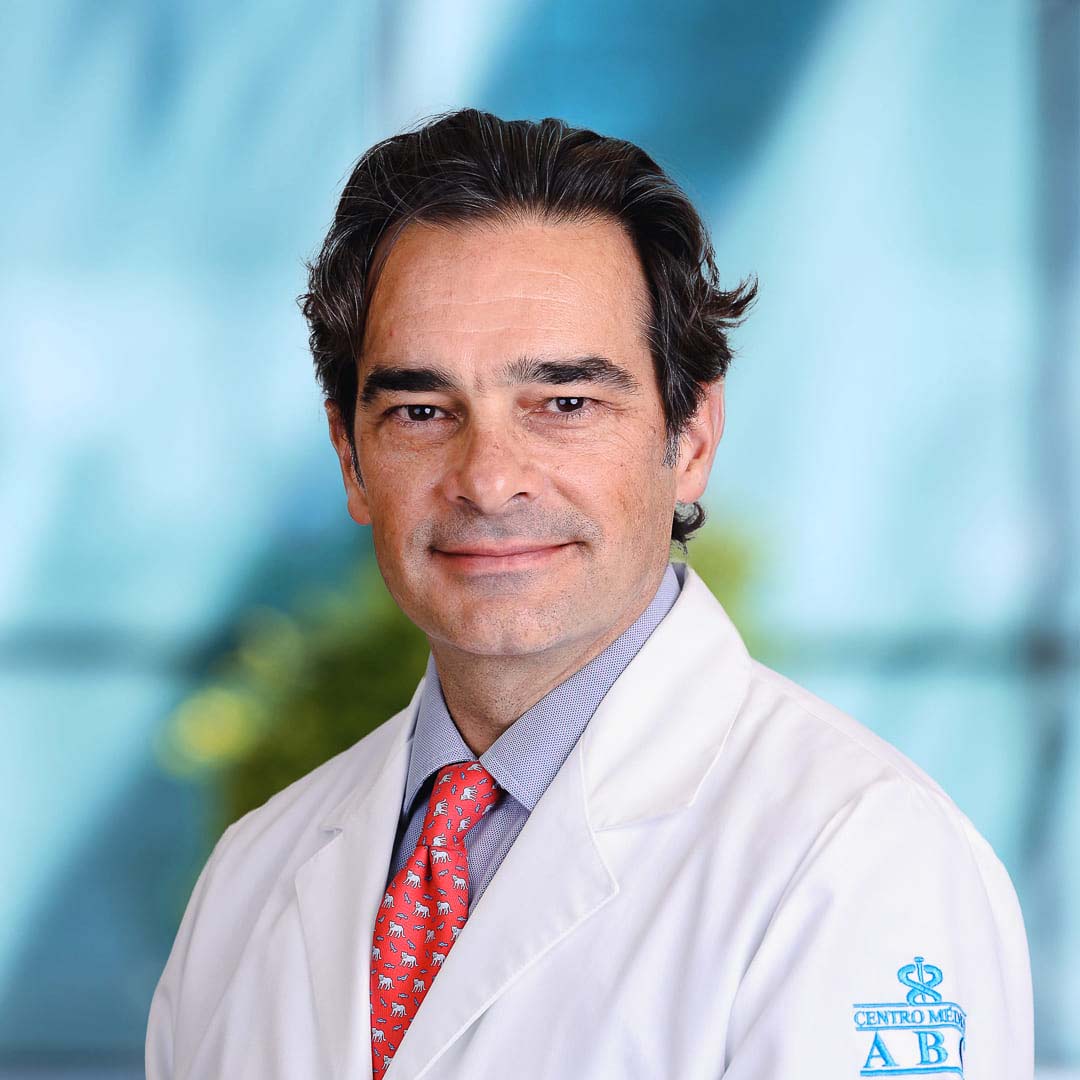What Is an Arrhythmia and When Should You Visit an Arrhythmia Clinic?
Arrhythmias are irregularities in the heart’s rhythm, causing it to beat too fast (tachyarrhythmias) or too slow (bradyarrhythmias). Some arrhythmias are harmless, but others require specialized treatment to prevent complications such as heart failure or stroke.

At the ABC Medical Center’s Arrhythmia Clinic, we use cutting-edge technology and a team of electrophysiology specialists to diagnose and treat these conditions.
Symptoms of Arrhythmias: Warning Signs
Symptoms vary depending on the type and severity of the arrhythmia. Some individuals may experience no symptoms at all, while others may notice clear warning signs. If you experience any of the following, we recommend a thorough evaluation at our clinic:
Common Arrhythmia Symptoms
- Palpitations (fast, strong, or irregular heartbeats)
- Dizziness or lightheadedness
- Fainting
- Shortness of breath (dyspnea)
- Extreme fatigue
- Excessive sweating
Symptoms Requiring Immediate Medical Attention
- Frequent fainting or loss of consciousness
- Severe breathing difficulty
- Prolonged or severe chest pain
- Very fast or irregular heartbeat accompanied by weakness
Arrhythmia Diagnosis at the ABC Medical Center Arrhythmia Clinic
Accurate diagnosis of arrhythmias is essential to determine the appropriate treatment. At the Arrhythmia Clinic, specialists use various tests to assess the heart’s electrical activity and detect irregularities in the heart rhythm.
- Clinical Evaluation:
Diagnosis begins with a detailed medical history and physical examination, assessing symptoms, family history of heart disease, and risk factors such as high blood pressure or structural heart problems. - Diagnostic Tests:
To confirm the presence and type of arrhythmia, we perform specialized tests, including:- Electrocardiogram (ECG): Records heart’s electrical activity at rest
- Holter monitor: Portable device that tracks heart rhythm over 24–48+ hours
- Stress test (exercise test): Assesses heart response to physical activity
- Echocardiogram: Evaluates heart structure and function
- Electrophysiological study (EPS): In-lab test to analyze electrical signals; may include catheter ablation
- Implantable/event monitors: Used for detecting infrequent arrhythmias
- Differential Diagnosis
Not all palpitations or symptoms are caused by arrhythmias. Some conditions, such as anxiety, stress, or thyroid problems, can produce similar symptoms, which is why an accurate diagnosis at the Arrhythmia Clinic is key.
Once the arrhythmia is identified, the specialist determines the most effective treatment plan, which may include lifestyle changes, medications, implanted devices, or catheter ablation.
Treatments at the ABC Medical Center Arrhythmia Clinic
At the Arrhythmia Clinic of ABC Medical Center, specialists offer a comprehensive approach to the treatment of arrhythmias, combining cutting-edge technology with a multidisciplinary team to ensure the best care for each patient.
Treatment Options
The choice of treatment depends on the type and severity of the arrhythmia and its impact on the patient’s quality of life:
- Lifestyle Modifications and Risk Factor Management
Some arrhythmias can be managed or prevented through healthy habits:- Reduce intake of caffeine, alcohol, and tobacco
- Control blood pressure and cholesterol
- Maintain a healthy weight and engage in moderate exercise
- Manage stress and anxiety
- Antiarrhythmic Medications
These medications help regulate the heart rhythm and prevent episodes of arrhythmia. - Minimally Invasive Procedures
Catheter Ablation:
This procedure uses radiofrequency or cryotherapy to destroy the heart tissue responsible for the arrhythmia. It is especially effective for:- Supraventricular tachycardia (SVT)
- Atrial fibrillation
- Certain types of ventricular tachycardia
- Performed in a specialized electrophysiology lab under sedation or local anesthesia.
- Implantable Devices
For life-threatening arrhythmias or continuous monitoring needs:- Pacemakers: Help regulate slow heart rhythms (bradycardia)
- Implantable cardioverter-defibrillators (ICDs): Detect and correct dangerous arrhythmias like ventricular tachycardia
- Cardiac resynchronization therapy (CRT): Improves heart function in advanced heart failure
- Cardiac Surgery for Complex Cases
When other treatments fail, surgery may be considered, such as surgical ablation or the Maze procedure, which creates controlled scarring to redirect electrical impulses in the heart.
Why Choose the ABC Medical Center Arrhythmia Clinic?
Each patient receives an individualized treatment plan based on advanced electrophysiology studies and continuous monitoring. In addition, the medical team provides comprehensive follow-up to ensure treatment effectiveness and improve quality of life.
- A specialized electrophysiology team
- State-of-the-art technology, including 3D electro-anatomical mapping and CATH-LAB
- Tailored treatments for each patient’s condition and needs
Location: Office 15, 2nd Floor, Central Tower, Observatorio Campus
Hours: Monday to Friday, 11:00 AM – 6:00 PM
Book Your Appointment at the Arrhythmia Clinic
If you’re experiencing arrhythmia symptoms or need an evaluation, contact our specialists today.
Fuentes:
Dr. Santiago Nava Townsend – cardiólogo electrofisiólogo del Centro Médico ABC
Centro Médico ABC: Clínica de Arritmias
Mayo Clinic: Arritmia cardíaca
National Heart, Lung, and Blood Home: ¿Qué es una arritmia?



